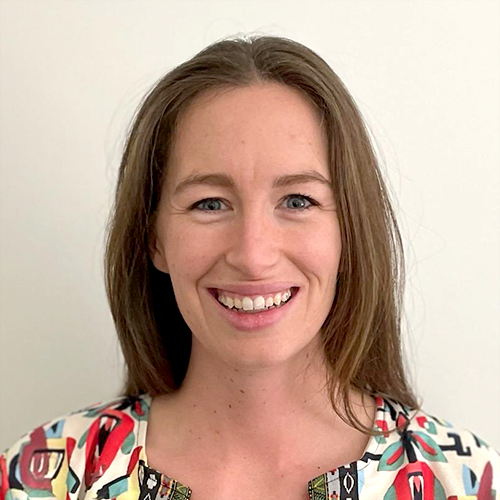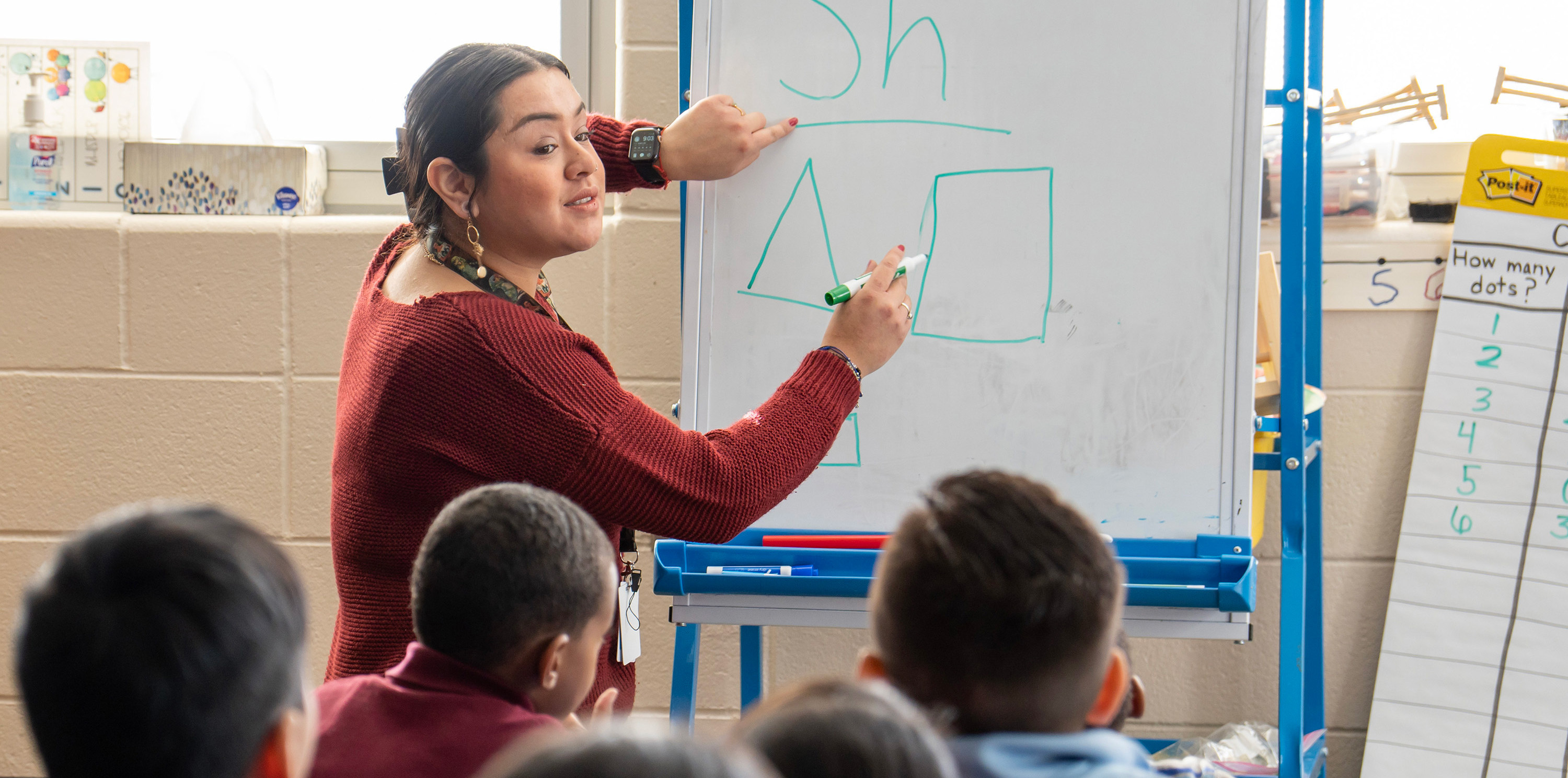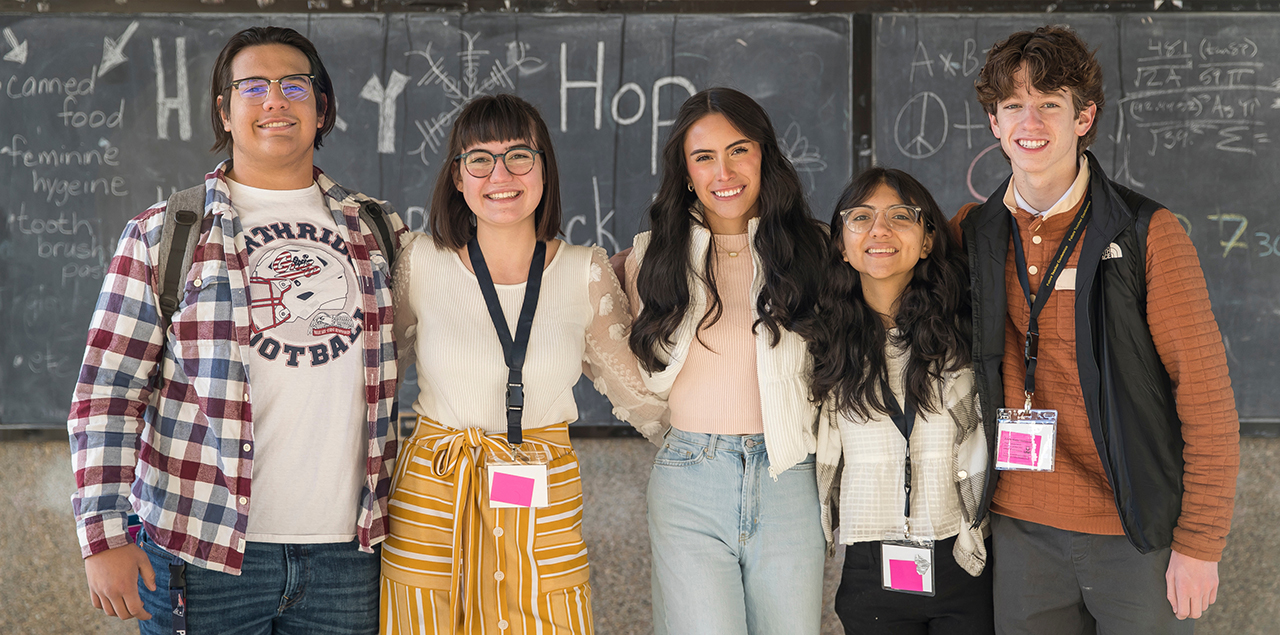
Imagine stopping into a familiar grocery store and discovering your favorite foods have been moved. A quick trip to the market is now a frustrating scavenger hunt. That's the way Emily Cantillon describes how children with cortical/cerebral visual impairment (CVI) experience changes in school. CVI technically isn't a visual impairment. The eyes could be healthy, but the connection between the eyes and the brain could be impaired, resulting in symptoms like low vision and difficulty seeing faces, images or moving objects. Approximately 30-40% of children with visual impairments have CVI.
Cantillon attended UNC for her master's degree in special education, focusing on students with visual impairments. Today, she's a doctoral student in the University of Northern Colorado's Special Education program. She's studied for both UNC degrees online from Massachusetts, where she teaches at the Perkins School for the Blind.
Her research explores how standardized cognitive assessments evaluate children with CVI. These tests determine the level of accommodations special education students receive.
"We don't have a good understanding of students with CVI. I want to ultimately create a better educational experience for my students."
— Emily Cantillon
"In the special education field, most students start with an initial evaluation, which uses standardized tests like the Wechsler Intelligence Scale for Children (WISC-V). That's their entrance into having an appropriate educational experience, so I wanted to focus on that starting point," Cantillon said.

Emily Cantillon
While there have been improvements in identifying kids with CVI in recent years, the research still needs to catch up. Cantillon's is the first CVI-related research to explore WISC-V assessments. It fills an important gap because assessment testing doesn't consider CVI's impact on students' cognitive abilities.
"We don't have a good understanding of students with CVI. I want to ultimately create a better educational experience for my students," she said.
She anticipates her research will help families, teams and educational communities understand standardized test results. Using standardized tools with a different lens will allow a blending of the fields to better understand what students need and lead to better student accommodations. She also believes her work will benefit people without visual impairments, as minor adjustments can increase accessibility for everyone.
Cantillon's confidence in her research abilities grew as she discussed a notebook full of potential dissertation topics with Silvia Correa-Torres, Ed.D., a professor of visual impairment in the School of Special Education.
"Her acceptance and recognition that any idea could be a great research project helped open me up to research beyond my comfort zone. Trusting in my ideas helped me feel confident in my choice," she said.
She found role models in UNC professors exploring multiple professional interests — teaching visually impaired youth, conducting research and teaching in higher education. Before long, she was doing the same. She's even assisted with research at a laboratory for visual neuroplasticity.
"One of the main pros is this program allowed me to retain my connections in Boston and use them in my classwork, which has helped me become a well-rounded researcher," Cantillon said.
Beyond academic support, Cantillon said her UNC professors encouraged work-life balance and taking time for herself.
"It speaks to how much they care. It's about more than just turning in assignments," she said.
Correa-Torres remembered Cantillon as an impressive master's program student and was excited when she applied for the doctoral program.
"Emily is definitely one of our strongest students. She has a great work ethic, produces high quality work and goes beyond what is expected from her. Her time management skills are amazing, and as a result, she adheres to deadlines and always meets her timelines, which is so important at this stage in the doctoral program," said Correa-Torres.
Time-blocking and other time management strategies serve Cantillon well leading up to her last day of the school year on June 14 and her wedding on June 15. As for her career plans, she wants to emulate those who inspired her.
"The program has built up my repertoire for conducting various types of research that will help my students in their everyday life as well as their families and teachers. And I always want to be a teacher. UNC's professors have inspired me to remain a teacher and stay connected to the students," Cantillon said.
Correa-Torres is eager to see what's next for Cantillon, who has shown promise as a researcher, leader and college-level course instructor.
"It's bittersweet when one of my best doctoral students is leaving, but we can always collaborate. I cannot wait to see what she does after her doctoral program and her future contributions to the field of blindness/visual impairments,” Correa-Torres said.
More Stories
-
The Importance of Teaching Underrepresented Cultures
La importancia de enseñar acerca de las culturas infrarepresentadas
-
Awarded for Recognizing Diversity in the Classroom
Este artículo no está en español.
-
Student Research Suggests Achievement Emotions May Hold Key to Academic Success
Este artículo no está en español.
-
Education Conference Caters to Colorado’s Future Teachers
Este artículo no está en español.





